Excellent Additions to Your Reading List
The Square and the Tower: Networks and Power, from the Freemasons to Facebook
by Niall Ferguson
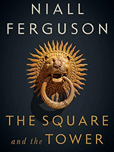
The 21st century has been hailed as the Age of Networks. However, in The Square and the Tower, Niall Ferguson argues that networks have always been with us, from the structure of the brain to the food chain, from the family tree to freemasonry. Throughout history, hierarchies housed in high towers have claimed to rule, but often real power has resided in the networks in the town square below. For it is networks that tend to innovate. And it is through networks that revolutionary ideas can contagiously spread. Just because conspiracy theorists like to fantasize about such networks doesn't mean they are not real. (Amazon)
The Common Rule: Habits of Purpose for an Age of Distraction
by Justin Whitmel Earley
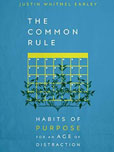
Twenty-first-century Christianity has experienced a much-needed renaissance in its theology of work, but it takes formational habits to work with the purpose we preach, and this ingredient is still largely missing from the conversation. In the meantime our workplaces are being fragmented by the distractions of technology, uncontrollable busyness, and the question of whether we want a job driven by purpose or upward mobility. This book addresses the need to pair our theology on the meaning of work with the formational practice of spiritual work habits in order to bring order and purpose back to the workplace - and to our lives.
True Paradox: How Christianity Makes Sense of Our Complex World
by David Skeel
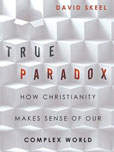
Although the twentieth century saw several landmark contributions to Christian apologetics, these Christian classics have lost some of their effectiveness in an era when America is more pluralistic than ever before and many Americans imagine that science has explained or will soon explain all of the mysteries of life. Skeel, however, argues that Christianity actually offers better explanations than materialism or other perspectives for many of the most important puzzles of our existence - such as our idea-making capacity, our perceptions of beauty and suffering, and our repeated optimism that we can create a truly just social order and repeated failure to do so.
On Reading Well: Finding the Good Life through Great Books
by Karen Swallow Prior

Reading great literature well has the power to cultivate virtue. Great literature increases knowledge of and desire for the good life by showing readers what virtue looks like and where vice leads. It is not just what one reads but how one reads that cultivates virtue. Reading good literature well requires one to practice numerous virtues, such as patience, diligence, and prudence. And learning to judge wisely a character in a book, in turn, forms the reader's own character.
Prior takes readers on a guided tour through works of great literature both ancient and modern, exploring twelve virtues that philosophers and theologians throughout history have identified as most essential for good character and the good life. (Amazon)
The Road to Character
by David Brooks
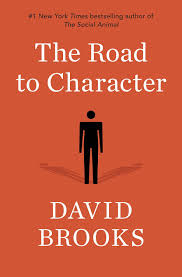 "Brooks focuses on the deeper values that should inform our lives. Responding to what he calls the culture of the Big Me, which emphasizes external success, Brooks challenges us, and himself, to rebalance the scales between our "résumé virtues"—achieving wealth, fame, and status—and our "eulogy virtues," those that exist at the core of our being: kindness, bravery, honesty, or faithfulness, focusing on what kind of relationships we have formed." (Amazon)
"Brooks focuses on the deeper values that should inform our lives. Responding to what he calls the culture of the Big Me, which emphasizes external success, Brooks challenges us, and himself, to rebalance the scales between our "résumé virtues"—achieving wealth, fame, and status—and our "eulogy virtues," those that exist at the core of our being: kindness, bravery, honesty, or faithfulness, focusing on what kind of relationships we have formed." (Amazon)A Hobbit, a Wardrobe, and a Great War: How J.R.R. Tolkien and C.S. Lewis Rediscovered Faith, Friendship, and Heroism in the Cataclysm of 1914-1918
by Joseph Loconte
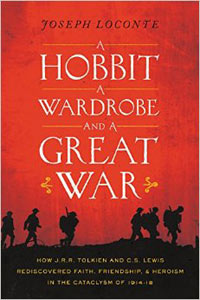 "The First World War laid waste to a continent and permanently altered the political and religious landscape of the West. For a generation of men and women, it brought the end of innocence—and the end of faith. Yet for J. R. R. Tolkien and C. S. Lewis, the Great War deepened their spiritual quest. Both men served as soldiers on the Western Front, survived the trenches, and used the experience of that conflict to ignite their Christian imagination. Had there been no Great War, there would have been noHobbit, no Lord of the Rings, no Narnia, and perhaps no conversion to Christianity by C. S. Lewis." (Amazon)
"The First World War laid waste to a continent and permanently altered the political and religious landscape of the West. For a generation of men and women, it brought the end of innocence—and the end of faith. Yet for J. R. R. Tolkien and C. S. Lewis, the Great War deepened their spiritual quest. Both men served as soldiers on the Western Front, survived the trenches, and used the experience of that conflict to ignite their Christian imagination. Had there been no Great War, there would have been noHobbit, no Lord of the Rings, no Narnia, and perhaps no conversion to Christianity by C. S. Lewis." (Amazon)by Stephen Hess
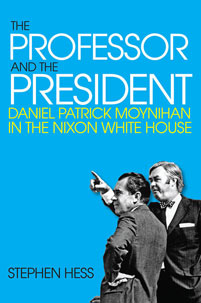 "Written by Stephen Hess, who served on the White House staff during both the Eisenhower and Nixon presidencies, this book is a uniquely personal account of what happened behind closed doors when conservative Richard Nixon made Daniel Patrick Moynihan, a liberal Ivy League professor, his top urban affairs adviser." (Brookings)
"Written by Stephen Hess, who served on the White House staff during both the Eisenhower and Nixon presidencies, this book is a uniquely personal account of what happened behind closed doors when conservative Richard Nixon made Daniel Patrick Moynihan, a liberal Ivy League professor, his top urban affairs adviser." (Brookings)Ministers at War: Winston Churchill and His War Cabinet
by Jonathan Schneer
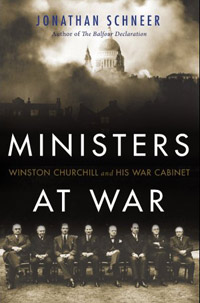 "Ministers at War tells the gripping story of how the man who certainly saved Britain and arguably saved western civilization managed his cabinet "team of rivals," a coalition of men who had spent most of their interrelated, pre-war political lives at daggers drawn." (First Things)
"Ministers at War tells the gripping story of how the man who certainly saved Britain and arguably saved western civilization managed his cabinet "team of rivals," a coalition of men who had spent most of their interrelated, pre-war political lives at daggers drawn." (First Things)To Change the World: The Irony, Tragedy, & Possibility of Christianity in the Late Modern World
by James Davison Hunter
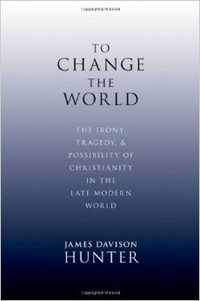 "The call to make the world a better place is inherent in the Christian belief and practice. But why have efforts to change the world by Christians so often failed or gone tragically awry? And how might Christians in the 21st century live in ways that have integrity with their traditions and are more truly transformative?
"The call to make the world a better place is inherent in the Christian belief and practice. But why have efforts to change the world by Christians so often failed or gone tragically awry? And how might Christians in the 21st century live in ways that have integrity with their traditions and are more truly transformative? Hunter argues that all too often current political theologies worsen the very problems they are designed to solve. What is really needed is a different paradigm of Christian engagement with the world, one that Hunter calls "faithful presence"-- an ideal of Christian practice that is not only individual but institutional; a model that plays out not only in all relationships but in our work and all spheres of social life." (Amazon)





